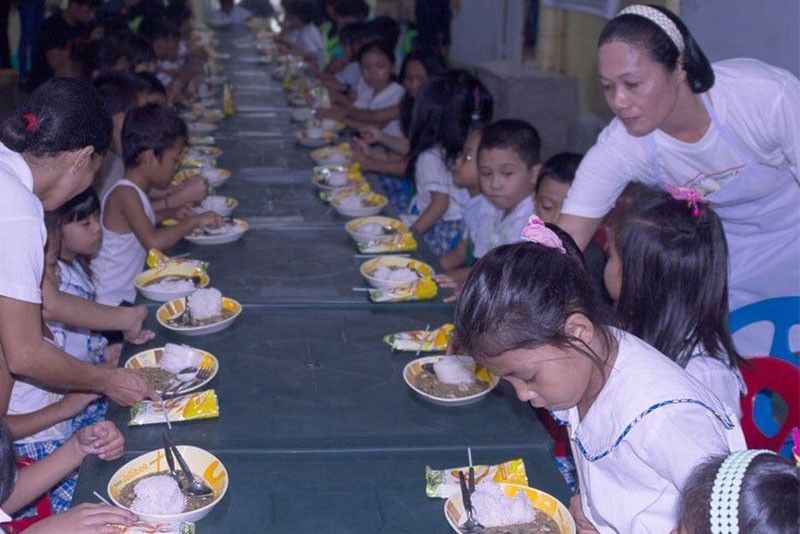Food and education


If there are only two things we can focus on to keep from falling into the abyss, that will be food and education. These two have us on the verge of an unspeakable crisis. Maybe those who lead us, public and private, ignored these concerns because they do not feel the urgency that most Filipinos feel.
Worse, we do not have an Agriculture Secretary, and the Education Secretary is unqualified for the enormous responsibility. The President is doubling as Agriculture Secretary, but the work is done by an octogenarian who is obviously out of touch with current challenges.
As for education, the main concern of the Vice President who heads DepEd is reviving ROTC and getting her confidential funds… not making sure our public-school pupils learn how to read, write, and count. Many of them end up in high school with no such skills and just get promoted to the next level due to a supposedly compassionate policy of not leaving anyone behind.
There is no doubt that if this current administration fumbles on food production and education in the remaining five years of their term, the future of our country will definitely be bleak. The daily lives of our people will just get more miserable than ever. The social volcano will simmer dangerously and there will be little anybody can do by that time.
We are getting indications of things to come even now. The last Pulse Asia survey, for example, showed people complaining about inflation, which is really mostly about escalating food cost. A study of PIDS shows that the poorest households spend 60 percent of their income on food.
As for the rest of the population below the Forbes Park level, Kantar, a marketing survey firm, confirms that food gets the bulk of their budget. So, when food inflation accelerated at 8.9 percent last month from 6.5 percent in July, it was painful for most Filipinos, but hardly felt by the Forbes Park crowd.
According to PSA, the acceleration of food inflation was mainly because of rice prices. Vegetables had an inflation rate of 37.8 percent in August from 28.5 percent in July.
The Philippines is prone to food inflation because we have neglected agriculture for a long time. That makes our options more limited compared to our neighbors that are net exporters of food. The Philippines has the largest food trade deficit in the region, at about negative two percent of GDP in the past three years.
If we wait for our government to get its act together on food security, things will just get progressively hopeless. It is time for our private sector conglomerates to start doing something to change the situation dramatically. That’s exactly what San Miguel is starting to do when it decided to invest in 12 large scale poultry farms all over the country.
No more mom and pop. Small is not going to move the needle on our food insecurity. Ramon S. Ang saw that when he decided to invest in very modern facilities. From a chicken importer, we will start to export chicken. The first facility inaugurated the other week in Davao will also boost the corn farmers in the area.
And the investment of San Miguel isn’t chicken feed… P20 billion per facility processing 80 million chickens a year… times 12 facilities nationwide.
The thing that I am watching carefully is how successful will San Miguel be in running a modern chicken facility where puede na is not good enough. Strict hygienic rules have to be mandatory because they can’t afford a pest epidemic that will ruin the entire business. They must follow rules to the letter, like running a nuclear power plant.
This is what we need to do in other areas of agriculture as well… large capitalization, advanced technology, scientific methods and utilizing the ability of our large corporations to process and distribute the products.
Then there is the high-tech vegetable vertical farm that MetroPacific invested in with some Israeli partners that is being built in Bulacan, as well as the Carmen’s Best dairy farm MetroPacific took over from the Magsaysays in Laguna. I wrote about these projects months ago. I have long been an advocate of encouraging the conglomerates to get into food production because that’s the quickest way for us to enhance our food security.
As for education, our only hope for redemption is also by getting greater participation from the private sector, specially the conglomerates. DepEd is too confused, too bureaucratic and too politicized to produce the results we need in a hurry. And corruption is too ingrained in their system. We can’t get enough teachers who can handle math and science. They are also losing good teachers who are migrating mostly to the US.
Unfortunately, there is no Ramon Ang and Manny Pangilinan to lead the private sector foray into public education. Ayala, through its foundation, had been fiddling with a CSR project on education called Centex or Center for Excellence for over a decade now. The initial results have been very good, but there is no scale and Ayala doesn’t seem to have any plans for scaling up Centex.
In that sense, Centex is a failure. Aside from a few thousand pupils who were lucky to have received their K-12 education in a Centex school, it ends there. If Ayala doesn’t feel like spending more on it, it should encourage other conglomerates to help expand the concept in more areas. Nice to have one K-12 Centex per region.
It is a pity because Ayala has a gem of a project that’s focused on the basics of elementary and secondary education, our problem areas today… a proven solution ready to be expanded.
Indeed, DepEd should be actively seeking ways of cooperating with private schools, specially in areas where they lack classrooms. The voucher system or even Charter Schools are options to be explored.
We should not be the worst in the world that we are in now, in reading, writing, and math. That’s the focus and the challenge DepEd should have. Not ROTC.
Boo Chanco’s email address is bchanco@gmail.com. Follow him on X or Twitter @boochanco
- Latest
- Trending
























